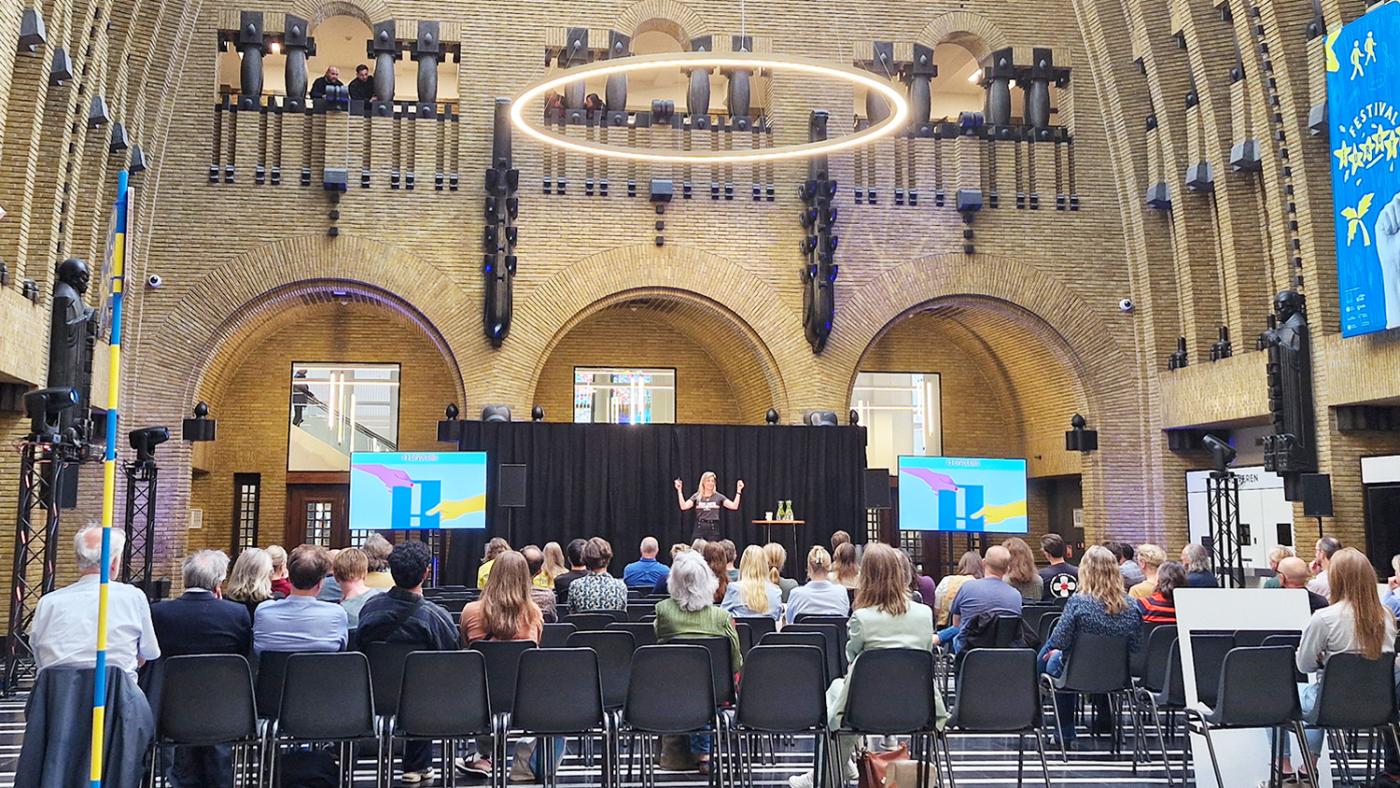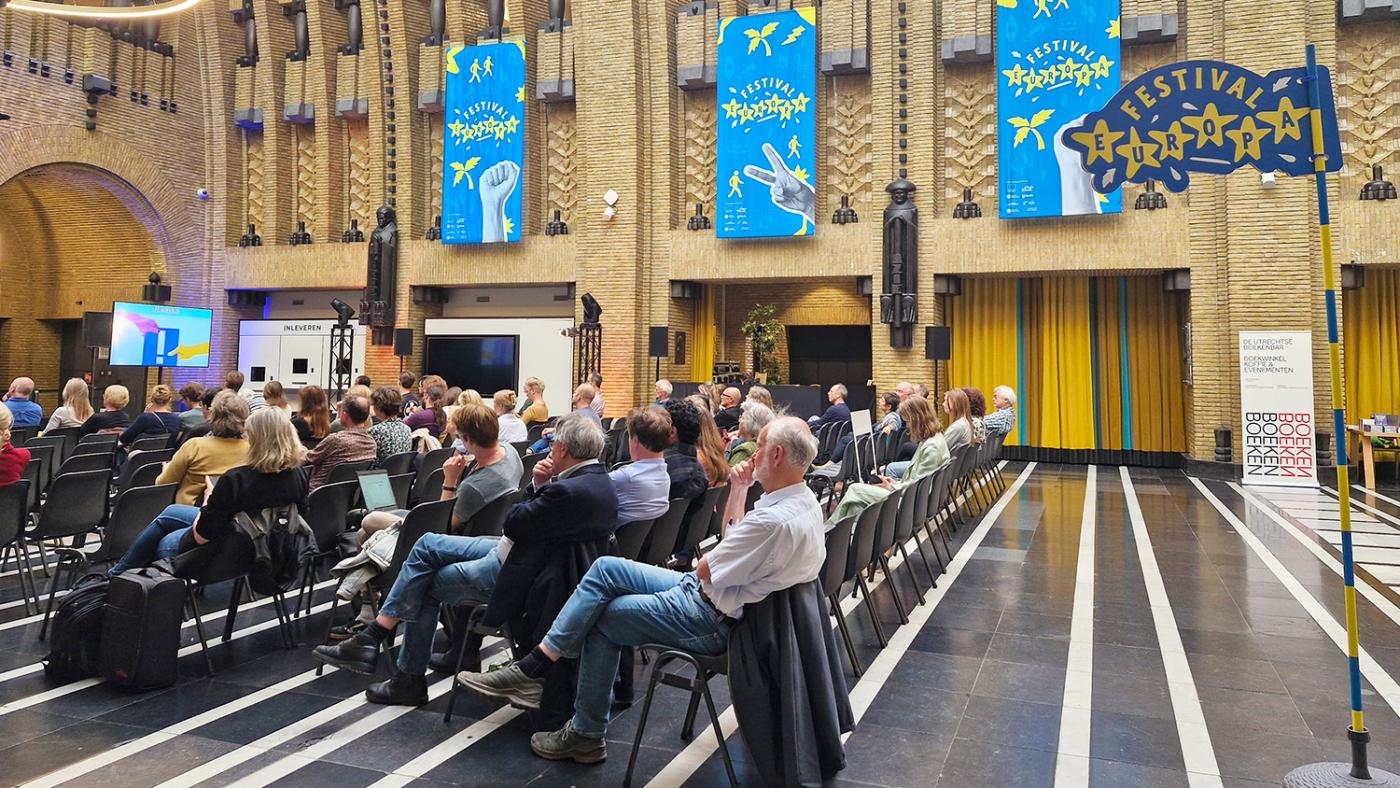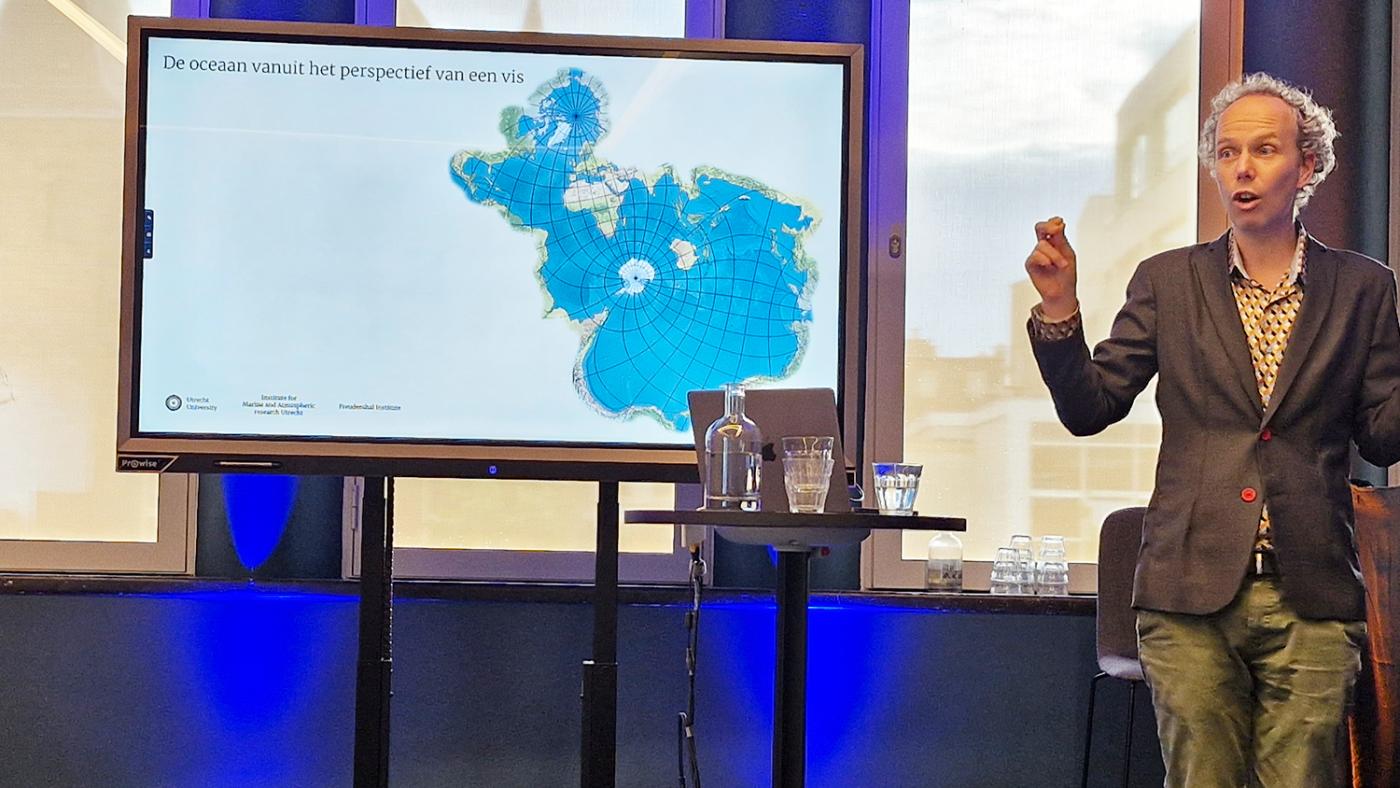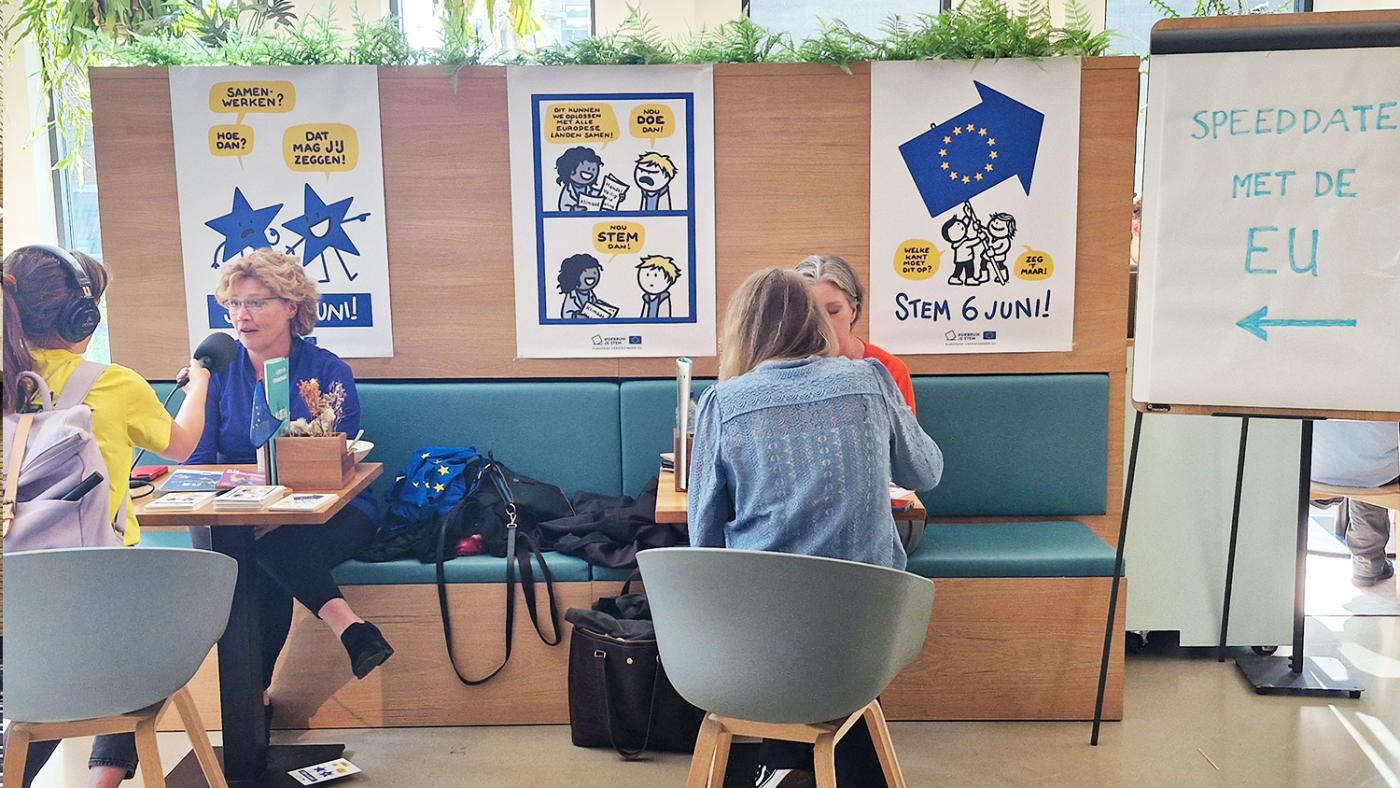Festival Europa shows what’s at stake ahead of European elections
‘I had no idea who to vote for, but I do now!’

Why is it important to vote in the European elections? How does the EU influence our daily lives? What does it mean to have a European identity? And what are the main challenges faced by the block right now? These and other matters were addressed on Friday, May 31, by Festival Europa, an event organised by Utrecht University in partnership with the Utrecht Library. The event was held in the run-up to the elections to the European Parliament, which take place on June 6 in the Netherlands.
Aimed at the general public, the event was free and all activities were in Dutch. Although it was possible to register online, people could also just walk in. According to team leader Dave van Toor, 900 people registered beforehand, but about 3,000 showed up at Neude library – that is 2,000 more than on an average Friday. Not everyone was there because of the festival as a limited part of the library was still open for regular activities such as studying or reading newspapers. Although many students were present at the event, it was a rather “grey-haired” audience.

The festival aimed to celebrate and discuss the European Union attractively, which is why the programme encompassed a variety of simultaneous activities. In one of the rooms, UU scientists did half-hour “TED” style talks about their research. For example, Janneke Gerards, Professor of Fundamental Rights at UU, talked about how European law is not yet suited for a society with AI, while UU oceanographer Erik van Sebille talked about plastic pollution in the ocean and how the EU can influence it. In the main hall, columnists, actors and writers talked about topics like migration, democracy, and security. Meanwhile, the library’s small movie theatre showed European-made movies from the perspectives of refugees and farmers, among others. Attendees could also participate in a “speed date” with employees of the European Commission and an escape room based on an 18th-century witch hunt story.


But the most popular event, by far, was the debate with party leaders presented by De Kiesmannen, an organisation that aims to get people to vote by organising events and debates ahead of elections. The library’s theatre, which has 180 seats, was packed and many attendees were denied at the door. “We had to disappoint a lot of people,” says Van Toor. Fortunately, the debate was livestreamed and the recording is available in its entirety on the festival’s website.
Attendees seemed to have found the event helpful. “I had no idea who to vote for, but I do now!” said one of them upon leaving the theatre. “I took a stemwijzer (voting quiz, Ed.) before coming here but this makes it a lot easier to make up your mind,” said another. “A Dutch-Japanese TV crew who were making an item about the EU elections, for which they had travelled across several countries, said that our festival was one of the biggest and most diverse events they had seen in terms of visitors and variety,” recollects Pauline Phoa, one of the founders of the festival.
Those interested in learning more about the EU can benefit from a series of blog entries on Festival Europa’s website. Written by UU students, these blogs debunk the main misconceptions students have about the EU, according to a survey ran ahead of the festival.